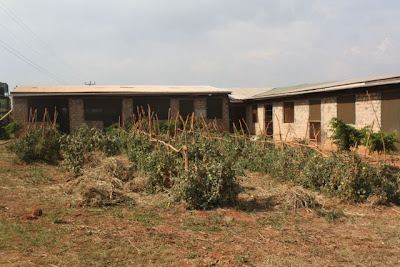Should religious leaders be involved in politics? What is
the relationship between politics and religion? Over this Easter as we
remembered the death and resurrection of Jesus, various Christian leaders made
comments on Uganda’s politics.
The Archbishop of the Church of Uganda remarked that, “We
have got different callings; the priests should preach the gospel and leave
politics for politicians.” He went on to state that, “Sometimes we have seen
people with white collars preaching politics; a doctor cannot be a mechanic.”
The seems clear from these statements that Archbishop’s opinion is that that
religious leader should not be involved in politics.
On the other side of town, the Assistant Bishop of Kampala,
Bishop Niringiye Zac stated that, the President of Uganda should relinquish
power so as to leave a clean legacy. In a similar tone, Archbishop Cyprian
Kizito Lwanga in his sermon called upon the President to relinquish power, in
his opinion, this is the biggest gift that the President could give to Ugandans.
With church leaders differing on their role in nation
building, this has left many faithful confused as to their role in the nation’s
state of affairs.
Bishops, Priests, Pastors and Kiwani preachers in
Uganda have become like a batch of comedians and laughing stock, not any different
from amarula family. Everything they
say is seen as a joke and no one takes them serious when they speak on issues
outside religion. This is a dangerous state of affairs.
What should the church do for the poor and oppressed in
society? How should the church respond to those that are unjustly treated in
society, when people are dying on the streets and children are going without food?
There are those that will say we have only been called to
“preach the gospel” that politics is not our duty but there are others who
believe the gospel compels them to advocate and defend the oppressed.
This reminds me of the 1994 Rwanda genocide where religious
leaders who were looked at as the hope for the oppressed turned out to be the
oppressors. This is not any different from the Dutch Reformed Church in South
Africa that justified apartheid. Should we watch as our country goes to the
dogs? I wonder where black and white racism in USA would be if Rev. Martin
Luther King Junior, a Baptist preacher, was quite to the issues of his day. I
wonder what would be the state of affairs in apartheid ridden South Africa if
Desmond Tutu had kept quite. Proverbs 29 reminds us that “by justice a king
gives a country stability” and it goes on to say that “the righteous care about
justice.”
While it is true that a mechanic is not a doctor, a mechanic
can deliver first aid to save a life. The church is an advocate for justice in
society. The target groups that
Jesus came for according to Luke 4:18 were the poor, captives, blind and down
trodden. These all were people living under oppression and suffering and could
do nothing on their own to be set free.
The prophet Ezekiel warned that if shepherds do not warn the
wicked man to renounce his ways, then he shall die for his sin, but they will
be held responsible for his death (Ezekiel 33). For religious leaders, omission
is just as grave a transgression as any other sin. Religious leaders should
speak boldly for justice in society. I also believe that religious leaders
should challenge political leaders and hold them accountable especially on
moral issues.
Kilama Dennis is the
Academic Registrar of Africa Renewal Christian College, Pastor at Lugogo Baptist
Church and a Doctoral Student at Africa international University.









